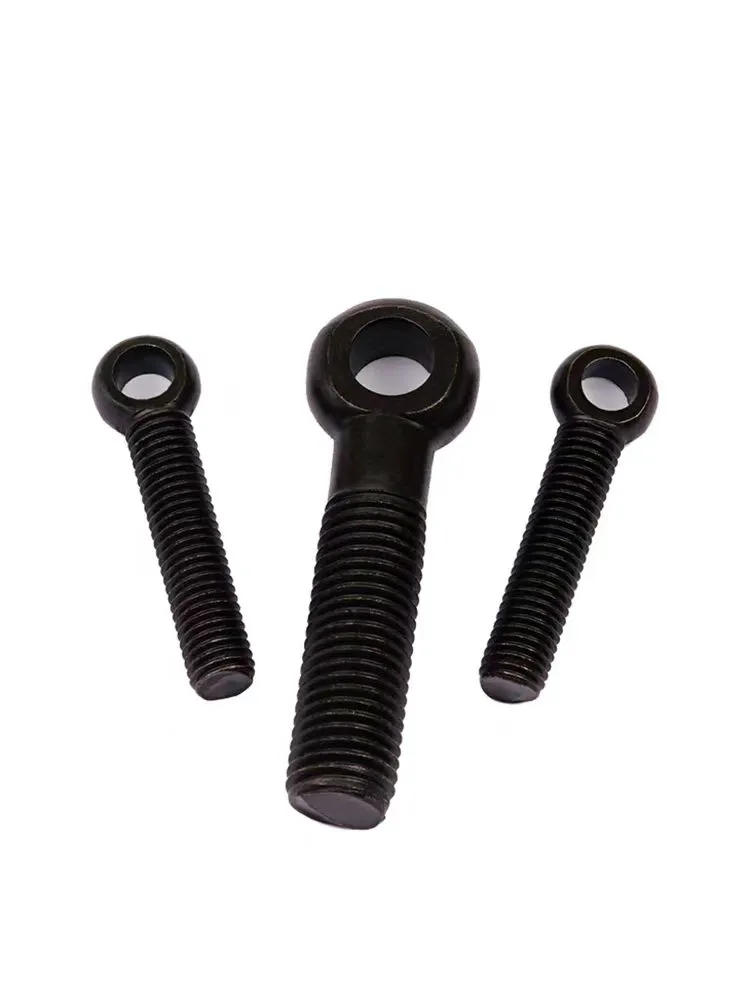

Understanding the Specifications and Applications of M9 Bolts in Construction Projects
Lug . 29, 2024 02:13 Back to list
Understanding the Specifications and Applications of M9 Bolts in Construction Projects
Understanding M9 Bolts Characteristics and Applications
The M9 bolt is a vital component in various engineering and construction applications. Bolts, in general, serve as fasteners designed to hold multiple objects together, and the M9 specification represents a standard measure in the metric system. The M denotes that it follows the metric thread standard, while the 9 refers to a nominal diameter of 9 mm, which is essential for identifying the size of the bolt.
Characteristics of M9 Bolts
One of the defining characteristics of M9 bolts is their thread pitch, which is typically 1.25 mm for standard M9 bolts. This means the distance between consecutive threads is 1.25 mm, providing a balance between ease of fastening and the strength of the connection. M9 bolts are usually manufactured from various materials, including carbon steel, stainless steel, and alloy steel, making them suitable for different environments. The most common finishes include zinc plating, black oxide, and hot-dip galvanizing. These coatings not only enhance the bolt's aesthetic but also improve its resistance to corrosion and wear.
M9 bolts are often used with nuts of the same size, typically M9 nuts, which facilitates the creation of secure joints. The relationship between the bolt, nut, and the materials being fastened is crucial in determining the load-bearing capacity of the assembly. The selection of the correct grade of bolt is equally important; for instance, a higher grade of steel will have a greater tensile strength, making it better suited for high-stress applications.
Applications of M9 Bolts
M9 bolts are utilized in a wide array of industries due to their robust nature and reliable performance. One of the most common applications is in the automotive industry, where they are used to secure various components, from engine parts to structural elements of the chassis. Given the vibrations and stresses present in vehicles, M9 bolts must provide a strong and persistent connection for safety and durability.
m9 bolt

Another important application is in the construction sector, where M9 bolts are often employed to join structural steel elements, such as beams and columns. The ability to maintain load integrity under various conditions makes M9 bolts ideal for high-rise buildings and bridges, ensuring that these structures remain stable and secure over time.
In the manufacturing sector, M9 bolts play a critical role in assembling machinery and equipment. They allow for the easy disassembly of components for maintenance and repairs, which is vital in preventing downtime in manufacturing processes. The versatility of M9 bolts allows manufacturers to standardize their fasteners, simplifying inventory management and ensuring compatibility across different machines.
Advantages of M9 Bolts
The popularity of M9 bolts can be attributed to several advantages. Their size—being 9 mm in diameter—strikes a balance between strength and weight, making them easily manageable while still capable of holding significant loads. Additionally, the simplicity of using standard metric dimensions allows for easier sourcing and replacement.
Furthermore, M9 bolts can be applied to a wide range of applications due to their compatibility with various materials and fastening devices. This adaptability ensures that engineers and technicians can confidently use M9 bolts across different scenarios, enhancing design flexibility.
Conclusion
In summary, M9 bolts represent a crucial element in many industries, renowned for their strength, reliability, and versatility. Understanding their characteristics, applications, and advantages not only helps in selecting the right fastener for a job but also contributes to the overall safety and efficiency of structures and machines. Whether in automotive, construction, or manufacturing, M9 bolts are integral in achieving secure and durable connections, making them indispensable in engineering and design.
Latest news
-
Premium Fasteners Manufacturer | AI-Driven Solutions
NewsAug.01,2025
-
Hot Dip Galvanized Bolts - Hebei Longze | High Strength, Corrosion Resistance
NewsAug.01,2025
-
High-Strength Hot Dip Galvanized Bolts - LongZe | Corrosion Resistance, Custom Sizes
NewsAug.01,2025
-
Best Self Tapping Screws for Drywall - Fast & Secure Installation
NewsJul.31,2025
-
High-Strength Hot Dip Galvanized Bolts-Hebei Longze|Corrosion Resistance&Customization
NewsJul.31,2025
-
Hot Dip Galvanized Bolts-Hebei Longze Metal Products|Corrosion Resistance&High Strength
NewsJul.31,2025

